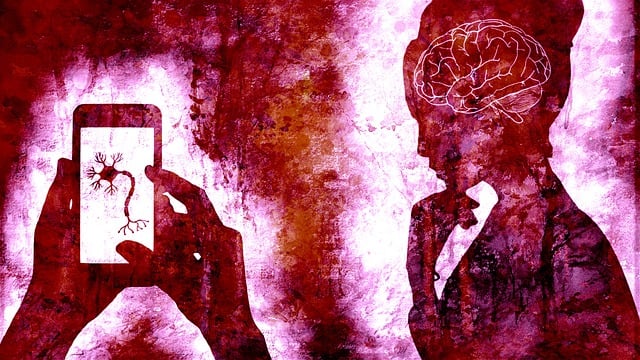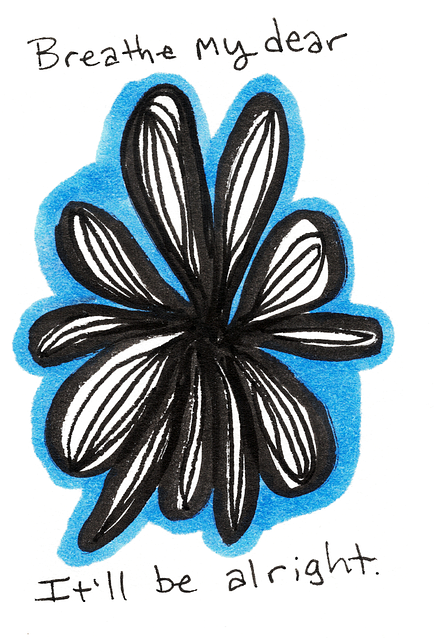Mental health advocacy, led by centers like Littleton Anxiety Therapy, is transforming communities in Littleton and beyond by tackling rising issues like stress, anxiety, and burnout. Through education, therapy (including CBT), and support groups, they destigmatize mental health conversations and teach coping strategies based on Mind Over Matter principles. Littleton Anxiety Therapy's holistic approach combines individual care with community building, achieving anxiety relief and improved well-being. Their campaigns and culturally sensitive practices also promote better access to quality mental healthcare and reduce stigma.
Mental health advocacy is a powerful tool for creating positive change. In this article, we explore the crucial role of mental health advocates and their initiatives in raising awareness, reducing stigma, and improving access to quality care. From understanding the fundamentals to showcasing successful models like Littleton Anxiety Therapy, we delve into strategies that have made a significant impact on communities worldwide. Discover how these efforts are transforming lives and shaping a more supportive society.
- Understanding Mental Health Advocacy: A Necessary Call to Action
- Littleton Anxiety Therapy: A Model for Community Engagement
- Strategies and Impact: Effective Mental Health Advocacy Initiatives
Understanding Mental Health Advocacy: A Necessary Call to Action

Mental health advocacy is a powerful tool for creating positive change and raising awareness about often-overlooked issues. It involves tirelessly championing for better mental healthcare, rights, and support systems within communities. This call to action is especially crucial in today’s fast-paced world where stress, anxiety, and burnout have become prevalent, even among young adults like those seeking therapy in Littleton. At centers such as Littleton Anxiety Therapy, therapists play a vital role in this advocacy by not only providing treatment but also educating the public about mental health.
By fostering Mental Health Awareness, these initiatives aim to destigmatize conversations around emotional regulation and encourage people to seek help when needed. In addition, Burnout Prevention strategies can be implemented at various levels, from individual self-care practices to organizational policy changes, ensuring that individuals are equipped with the tools to manage their mental well-being. This collective effort can lead to a more supportive society where mental health is prioritized and nurtured.
Littleton Anxiety Therapy: A Model for Community Engagement

Littleton Anxiety Therapy stands as a beacon of hope and a model for community engagement in addressing mental health challenges, particularly anxiety. This initiative focuses on empowering individuals through evidence-based practices like cognitive behavioral therapy (CBT) to gain better control over their lives. By integrating these strategies into everyday life, participants learn effective coping mechanisms, fostering emotional regulation and ultimately achieving anxiety relief.
The program’s success lies in its holistic approach, combining group therapy sessions with individualized support. Facilitators employ Mind Over Matter principles, teaching individuals to reframe negative thoughts and behaviors. This not only enhances mental resilience but also encourages a sense of community among participants, creating a safe space for sharing experiences and learning from one another.
Strategies and Impact: Effective Mental Health Advocacy Initiatives

Mental health advocacy initiatives play a pivotal role in shaping public perception and improving access to quality care. Effective strategies often involve raising public awareness through targeted campaigns that dispel myths and promote understanding. By utilizing various media, such as social platforms and community events, these campaigns can reach diverse audiences, fostering an environment where conversations about mental health are normalized. For instance, initiatives like Littleton Anxiety Therapy have successfully used educational resources and support groups to empower individuals dealing with anxiety disorders.
Emotional intelligence is another key component that contributes to the impact of advocacy. Training mental health professionals in cultural sensitivity ensures they can provide tailored care, addressing unique challenges faced by different communities. This approach not only enhances service accessibility but also strengthens trust between patients and healthcare providers. Public Awareness Campaigns Development strategies that incorporate emotional intelligence and Cultural Sensitivity in Mental Healthcare Practice have shown promising results in improving treatment outcomes and reducing stigma associated with seeking mental health support.
Mental health advocacy initiatives, such as Littleton Anxiety Therapy, demonstrate the power of community engagement in fostering positive mental well-being. By employing effective strategies, these programs significantly impact individuals and communities, creating a more supportive and understanding environment. Through education, awareness, and direct support, mental health advocates are revolutionizing the way we approach psychological wellness, ensuring that help is accessible and stigma is reduced. This is a crucial step towards a healthier, more inclusive society.













